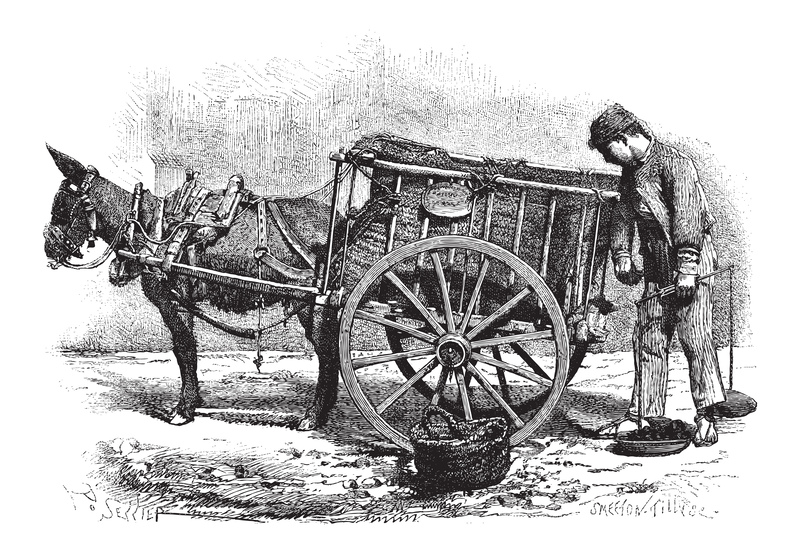Lead the Charge in Office Recycling Initiatives: Your Comprehensive Guide
In today's ever-evolving business landscape, companies are recognizing the crucial role they play in nurturing a sustainable world. Office recycling initiatives are no longer an option--they're imperative. By championing these green moves, businesses can boost employee morale, reduce costs, improve their brand image, and, most importantly, help protect the environment. Whether you're a corporate manager, office administrator, or a passionate eco-advocate, leading the charge in workplace recycling can yield remarkable benefits for your business and our planet.

Why Office Recycling Is More Important Than Ever
The world produces an estimated 2.01 billion tonnes of municipal solid waste annually, with at least 33% of that not managed in an environmentally safe manner. Offices are significant contributors, with paper, plastic, and electronic waste accounting for a notable chunk of daily landfill. Taking responsibility for the waste generated in your office can substantially reduce your ecological footprint.
- Reduces landfill waste: Properly recycling paper, plastics, electronics, and more helps divert massive amounts of recyclable material from landfills each year.
- Conserves resources: Recycling saves energy, preserves natural resources, and encourages a circular economy.
- Builds a positive organizational image: Companies with green initiatives improve their public image and attract eco-conscious clients and talent.
- Complies with regulations: Many regions enforce recycling laws for businesses; proactive recycling ensures compliance and prevents fines.
Assessing Your Current Office Recycling Practices
Before driving change, evaluate your current office recycling programs with a critical eye. Is your workplace recycling effort simply a paper-and-plastic bin in the corner, or is it an integrated, well-communicated campaign? Consider:
- What types of recyclables are collected (paper, cardboard, electronics, printer cartridges, food waste, etc.)?
- Where are bins placed? Are they accessible and clearly labeled?
- How much does your office recycle versus how much waste you generate?
- What is your bin contamination rate (non-recyclables in recycle bins)?
- How aware and involved are your employees in recycling efforts?
Gathering accurate data is essential. Conduct an office waste audit, survey employees, and evaluate existing vendor programs. This insight forms the foundation for your future recycling drive.
Building the Case: Benefits of Leading Office Recycling Campaigns
Environmental Impact
Every ton of recycled office paper saves 17 trees, 7,000 gallons of water, and enough energy to power the average home for six months. Imagine the compounded effect when an entire organization participates enthusiastically!
Financial Savings
Cutting down on waste disposal fees, purchasing fewer new office supplies, and streamlining materials management are tangible economic gains. In some regions, companies can even earn revenue from recyclable materials.
Employee Satisfaction & Engagement
Modern employees want to know their work matters. Allowing staff to participate in meaningful green office initiatives improves morale, encourages collaboration, and helps attract and retain top talent.
Corporate Social Responsibility (CSR) Enhancement
Clients, investors, and partners are increasingly judging businesses by their environmental efforts. Visible, well-managed recycling initiatives enhance brand credibility and differentiate your business from competitors.
Steps to Lead the Charge in Office Recycling Initiatives
1. Secure Leadership Buy-In and Set Goals
The success of any workplace recycling program hinges on upper management commitment. Start by presenting your data, sharing the environmental and financial benefits, and outlining how recycling aligns with the business's values and mission. Clear, measurable goals--such as "reduce landfill waste by 30% in 12 months"--help drive accountability and progress.
2. Appoint a Dedicated Recycling Champion or Green Team
Forming a volunteer sustainability committee or designating an environmental champion ensures someone is always pushing initiatives forward. This group manages logistics, communicates with staff, coordinates with vendors, and celebrates successes.
3. Educate and Involve Employees
Educate your team about what can and cannot be recycled, where collection points are, and why participation matters. Host talks, send engaging email reminders, or run short workshops. Feature recycling facts in internal newsletters or on digital screens in common spaces to boost visibility and enthusiasm.
- Clarify which plastics, metals, and paper types are approved by your waste provider
- Share the impact of past recycling efforts (e.g., "We saved X trees this year!")
- Host recycling challenges or reward programs to incentivize participation
4. Choose the Right Bins, Labels, and Placement
Successful office recycling campaigns rely on accessibility and clarity. Provide separate, well-labeled bins for each recyclable category--paper, plastics, glass, organics, and landfill waste. Use color-coded signage and clear, pictorial labels. Place bins:
- Next to every printer and copier for paper waste
- In kitchens, break rooms, and near vending machines for plastics, cans, and glass
- At each employee's desk if possible, to encourage sorting at the source
5. Reduce, Reuse, and Go Beyond Basics
Truly exemplary office recycling leadership goes further than just separating waste. Integrate the "reduce and reuse" portions of the environmental triad:
- Encourage double-sided printing or going paperless for internal documents
- Switch to reusable kitchen supplies--coffee mugs, plates, cutlery--over disposables
- Start a supply exchange, allowing staff to swap surplus office goods like binders, folders, or electronics
- Donate or repurpose old office equipment before recycling
6. Partner with the Right Waste and Recycling Vendors
Choose a reputable waste management vendor offering comprehensive recycling services. Ask about:
- Accepted recyclable materials (e-waste, batteries, confidential shredding, compost, etc.)
- Bin types and collection schedules
- Support for educational or promotional materials
- Tracking, reporting, and certification of your recycling performance
7. Track Progress and Celebrate Wins
Set up systems to measure waste diversion rates, contamination levels, and cost savings over time. Regularly share updates with staff, celebrate milestones, and reward high-performing teams or individuals.
- Use digital dashboards or posters in communal areas
- Host annual or quarterly green awards or ceremonies
- Share success stories in company meetings or on social media
Innovative Ideas to Boost Your Office Recycling Initiatives
Host "Green Days"
Dedicate a monthly or quarterly day to deep-clean and recycle old documents, obsolete electronics, or unwanted office supplies. Combine it with environmental learning, food, or friendly competitions for extra motivation.
Launch a Zero-Waste Challenge
Challenge departments to go zero-waste for a week (or even a day!), offering incentives for the lowest landfill contributions. Share creative strategies and progress between teams.
Introduce Organic and E-Waste Recycling
Go beyond paper and plastic. Introduce organic waste streams for coffee grounds and lunch scraps, sending them to municipal compost. Partner with community e-waste recyclers for old computers, phones, and batteries.
Use Technology for Greater Engagement
Deploy apps or online platforms that help employees learn about sorting rules, track personal impact, or suggest recycling solutions. A little gamification goes a long way toward enthusiastic participation!
Overcoming Common Challenges in Office Recycling Campaigns
Even the best-planned office recycling programs face obstacles. Here's how to tackle the most frequent ones:
- Lack of Awareness: Counter with regular training, clear signage, and fun fact-sharing.
- Bin Contamination: Improve labeling, inspect bins regularly, and give feedback to teams.
- Inconvenient Bin Placement: Walk through the office and reposition bins for maximum accessibility.
- Lack of Motivation: Use competitions, spot prizes, and public recognition to appeal to both individual and team pride.
- Limited Vendor Support: Review contracts and seek partnerships with providers committed to sustainable solutions.

Measuring Success and Refining Your Office Recycling Efforts
Remember, sustainability is a journey. Schedule regular audits and feedback sessions. Look for ways to increase participation, introduce new recyclable streams, and further reduce your total waste year after year. The most successful office recycling leaders are those who adapt and innovate as needs and opportunities evolve.
- Assess your waste diversion rate at least quarterly
- Survey employees for feedback and new ideas
- Benchmark against similar-sized organizations or industry standards
Conclusion: Become a Changemaker for Green Office Culture
Modern businesses have a unique opportunity--and responsibility--to spearhead environmental stewardship. Leading the charge in office recycling initiatives is a step towards a cleaner, greener, and more responsible company. From reducing your ecological footprint to boosting engagement and improving your brand, effective workplace recycling strategies are a win-win proposition.
Are you ready to become the office recycling champion? Start small, dream big, and foster a culture where every employee believes their actions count. Together, your organization can ignite momentum for a more sustainable future--one recycled paper, cartridge, or can at a time.
Take the lead in office recycling, reshape your workplace, and inspire sustainability within and beyond your walls.